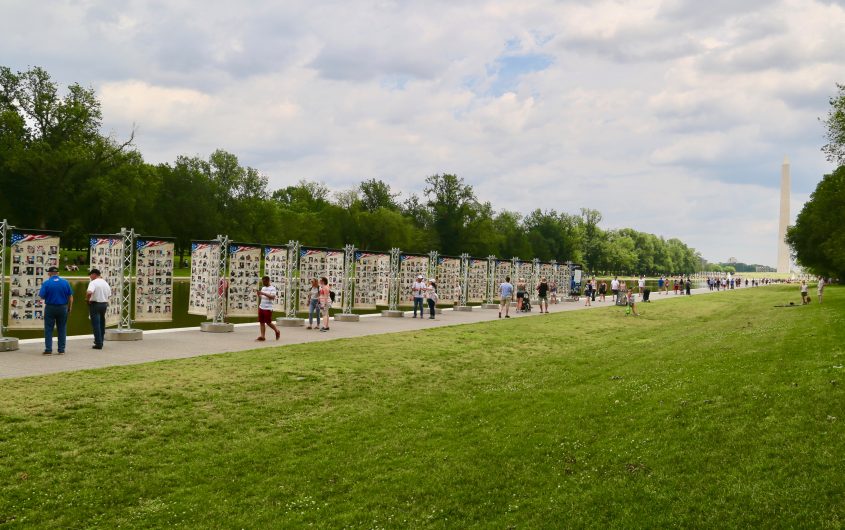
Photo by author
The Afghanistan War: Collective Memory Formation in the United States and Germany

Axel Heck
Kiel University
Dr. Axel Heck is a DAAD/AICGS Research Fellow from May to mid-July 2019. He is a senior lecturer in International Relations at Kiel University in Germany. Prior to his appointment in Kiel, Dr. Heck was a post-doctoral researcher at the University of Freiburg, research associate at the University of Mainz, and lecturer at the University of Frankfurt. He received a graduate fellowship from the Konrad-Adenauer-Foundation for his PhD and he was a visiting fellow at the Center for Transatlantic Relations at Johns Hopkins University (SAIS) in Washington, DC. Dr. Heck is the author of Macht als soziale Praxis: Die Herausbildung des transatlantischen Machtverhältnisses im Krisenjahr 1989 (Power as social practice: the formation of the transatlantic relationship in the crisis of 1989) on power in transatlantic relations and several articles on representations of war in media, culture, and society.
During his fellowship at AICGS, Dr. Heck will compare collective memory formation regarding the Afghanistan war in Germany and the United States.
More than eighteen years have passed since October 2001, when U.S. forces were deployed to Afghanistan after the Taliban regime refused to extradite Osama bin Laden and shut down Al-Qaeda terror camps. Even today, the war in Afghanistan is inseparably linked to the memories of 9/11 and the Al-Qaeda mastermind. When U.S. Special Forces killed bin Laden in Pakistan in May 2011, people all over the United States were relieved. Citizens came together in front of the White House in Washington, DC, in Times Square in New York City, and across the U.S., cheerfully shouting: “U-S-A, U-S-A” or “Obama killed Osama”—a slogan that was even printed on t-shirts. Moments when Americans are united in such celebrations have become rare. Moments when politicians from both sides of the aisle unanimously congratulate a sitting president are even rarer. The wounds 9/11 has left behind in the U.S. public consciousness are deep, and the ongoing war in Afghanistan is a constant reminder. But practices of collective remembrance and celebrations help people to deal with these wounds and to reaffirm national identity, in spite of political differences and controversies.
When bin Laden’s death hit the news, German chancellor Angela Merkel said in a press statement, “Ich freue mich darüber, dass es gelungen ist, bin Laden zu töten,” which means that she was “pleased” or “delighted” that he had been killed. Merkel’s rather unusual emotional wording caused an immediate public outcry. Labels of “clumsiness” and “inappropriateness” were among the weaker reactions; a judge from Hamburg even filed a charge of “public endorsement of a criminal act” (which is punishable in Germany), and called her expression “beyond all values,” as Der Spiegel reported. Harsh reactions to Merkel’s statement on bin Laden’s death indicate that people in Germany and the United States not only hold a slightly different perspective on how to deal with the perpetrators of 9/11, they remember and or commemorate such incidents collectively in very different ways. In Germany, the public celebration of such a killing—even of a top terrorist—is beyond imagination.
The United States and Germany are bound together by thousands of family ties, friendships, and professional relationships. People in both countries are more similar than often assumed. But the two nations differ enormously regarding their national identities and their self-understanding as actors on the global stage. Hence, one could expect that the collective memory of war also works quite differently.
Today, more than eighteen years after troops were first deployed, it is unclear how the Afghanistan war will be remembered in both countries. Regarding the different national identities in terms of the self-understanding as military actors on the global stage, one could expect different memory cultures, practices of commemoration, and remembrance. But due to the fact that both countries were engaged in the same war with an all-voluntary army, fighting side-by-side in many operations, one could also expect similarities in the way the Afghanistan war will be remembered not only by practitioners and experts, but also in society at large.








